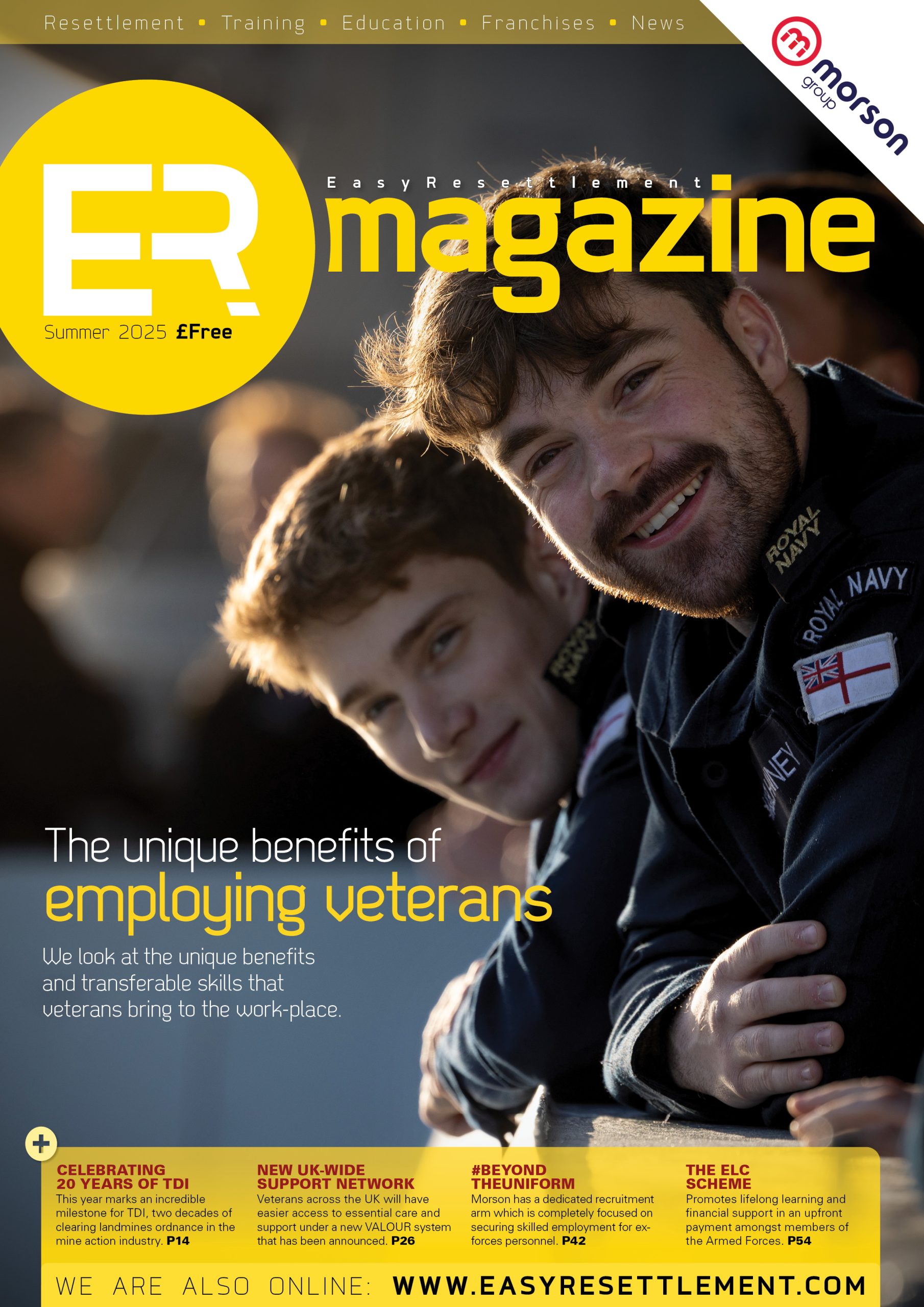Project Fortis
Project Fortis is a well-established and growing online careers network for service leavers, set up 4 years ago by a group of technology experts and veterans.
Their mission is to provide contacts, support and job opportunities to men and women of all ranks as they leave the Armed Forces, to help them make a successful transition to rewarding civilian careers.
The Social Enterprise was created in 2012 with BT as a founding sponsor, originally as a way of giving BT’s ex-Forces employees an opportunity to provide 1:1 career support to service leavers and veterans.
Now 4 years later, Project Fortis is a thriving community of Armed Forces supporters in industry, representing over 30 top UK employers across a wide range of sectors. The organisations involved recognise the enormous value of the talent on offer by engaging service leavers. They also understand some of the challenges faced when adapting to civilian life and a very different working environment after leaving the Armed Forces.
WHY PROJECT FORTIS?
The team behind Project Fortis found a growing number of people – both ex-Forces and civilians – want to give support to the Armed Forces community. There just weren’t many opportunities for individuals to make a difference in direct and practical ways, other than through charitable causes and local initiatives.
Equally service leavers and veterans often lack contacts in the civilian world to help them navigate the civilian jobs market, and apply their skills and experience.
SO WHAT IS PROJECT FORTIS AND HOW DOES IT WORK?
At the heart of Project Fortis is the website: www.projectfortis.co.uk – the platform connects service leavers and veterans to ‘Buddies’ from the business community who have pledged to offer personal support.
The Buddies come from a variety of backgrounds and levels of seniority. They’re primed and well positioned to give service leavers the inside track on their organisation, and share their experience of specific roles and job application processes.
Richard, who has helped many thousands of people secure employment over the years, explains that: “To access career advice and 1:1 support you just need to visit the Project Fortis website and sign-up. You create a simple profile – telling us about your Forces background, location and the industries you want to explore, and then we put you in contact with the right people. Our focus is to connect you with people who will understand your situation and are keen to help you succeed. They may well have already done some of the ‘heavy lifting’ having successfully transitioned themselves – they can tell you what worked for them and crucially, what didn’t!
There are a growing number of people out there from various industries that are willing to give you the advice you need. We already have a few thousand members, and the community is constantly growing as word spreads about some of the excellent employment outcomes.
A NEW APPROACH TO FINDING WORK
It’s still a relatively new approach to finding work, and people are using Project Fortis in different ways. Some have a specific organisation or job role in mind, and just want to connect with, say, telecoms experts because they know that’s where they want to end up. Most of the time people are trying to work out which sectors and roles they’re suited to, so they connect with several different people at a time to get inspiration and number of different opinions. If only we’d all had this type of careers support!
We find that people often need some very practical assistance with CV writing and preparation for interviews. And increasingly, moral support is something that people tell us they value greatly. Going through the recruitment process is a challenge for anyone; someone that can open doors, and give the right amount of support and challenge, can prove invaluable in securing the job you want.
84% of people we’ve worked with tell us the relationships they’ve formed through Project Fortis have had a significant impact on their job prospects, which is hugely satisfying for us. And we’re working continually to get more and more ambassadors on board to broaden the range of employment opportunities.”
Richard Tyrie – Founder of Project Fortis says: “Now that most of us walk around with Smart Phones, we wanted to make it easier to connect people that need advice with others that are keen to give it”
He adds: “Another important aspect of the project is to use our community to provide Forces leavers with access to work placements and unique job opportunities. Employers now fill the majority of job openings without advertising, with up to 70% of jobs being filled through informal networks. Knowing what jobs are coming up, and getting ‘introduced’ to an organisation or hiring manager by an insider can often give you the edge.
With the advent of social and business networks, most organisations’ approach to recruitment is changing quickly, so you need to keep abreast of these changes. It’s not as simple as reading the local recruitment ads anymore – securing a great job is getting trickier for everyone. We felt that many service leavers were at a disadvantage before they’d even started their transition – so we wanted to fix this and level the playing field by connecting people into organisations – giving them more of a chance to showcase their skills and identify for themselves what career they might want to pursue next.”
MIKE HARRIS
Former Army Sergeant, now Telecommunications Engineer for Openreach
“Coming out of the Army, my main concern was my age (41), and not having any real civilian qualifications despite extensive experience in several areas. I also worried about having to start from the bottom of the ladder again. Although I was quite willing to do this, I wanted to ensure that the end wage would allow my wife Wendy, my son Ryan and I to still live a life as we did in the Army.
My BT buddy match, Allan was perfect and really helped me get the job I wanted at BT.
Allan was in the Territorial Army so even though he hadn’t served like I did, he understood military speak and where I was coming from. Although he wasn’t doing the job I was applying for, he understood the organisation, how it was structured and the way BT does things.
He even organised a day trip for me to come into his office, and speak to him and his colleagues. It was especially useful for me to understand the difference in timescales when applying for a big company like BT. I had assumed that I was doing something wrong because things weren’t happening as quickly as I was used to in the Army. I’d highly recommend Project Fortis to anyone leaving the Armed Forces.”
MEGAN TYZACK
Lance Corporal in the Royal Artillery
Megan connected with Joe Dunhan through Project Fortis. Joe served in the RAF 18 years and had a very clear idea of the type of civilian career he’d like to pursue – recognising that his responsibilities and skills gained in the RAF were transferrable to the role of a civilian Management Consultant. Now working for Deloitte, Joe’s passion for supporting the Armed Forces, and understanding of the challenges faced by people transitioning to civilian life, lead him to join Project Fortis
“My physical transition was a lot easier than the mental, the real difficulty was getting used to the cultural differences”
At the time of being matched to Joe, Megan was undertaking a course and had an interview lined up with BT.
“Joe was brilliant. He was good in being proactive and providing resources.”
Joe provided much-needed insight into Openreach by opening up his network of contacts. He connected Megan to BT’s Head of Military Engagement – Mark Arscott.
Megan was successful in her interview and has since started working as an Openreach Engineer. She shared some advice to others – echoed by many service leavers:
“Set little milestone goals, work through each one, have a process, have a mindset of who you might want to work for, read about it and do not be afraid to go outside and ask for help and guidance. So much information and resources exists to help you, stick your neck out and get out there.”

